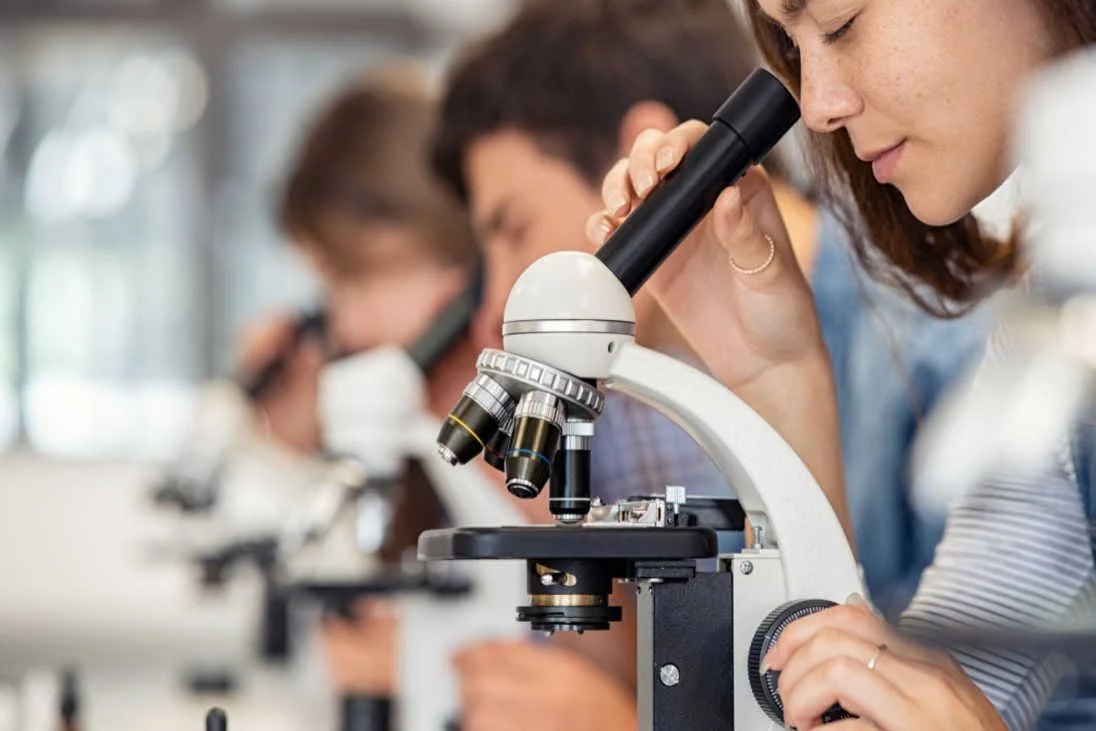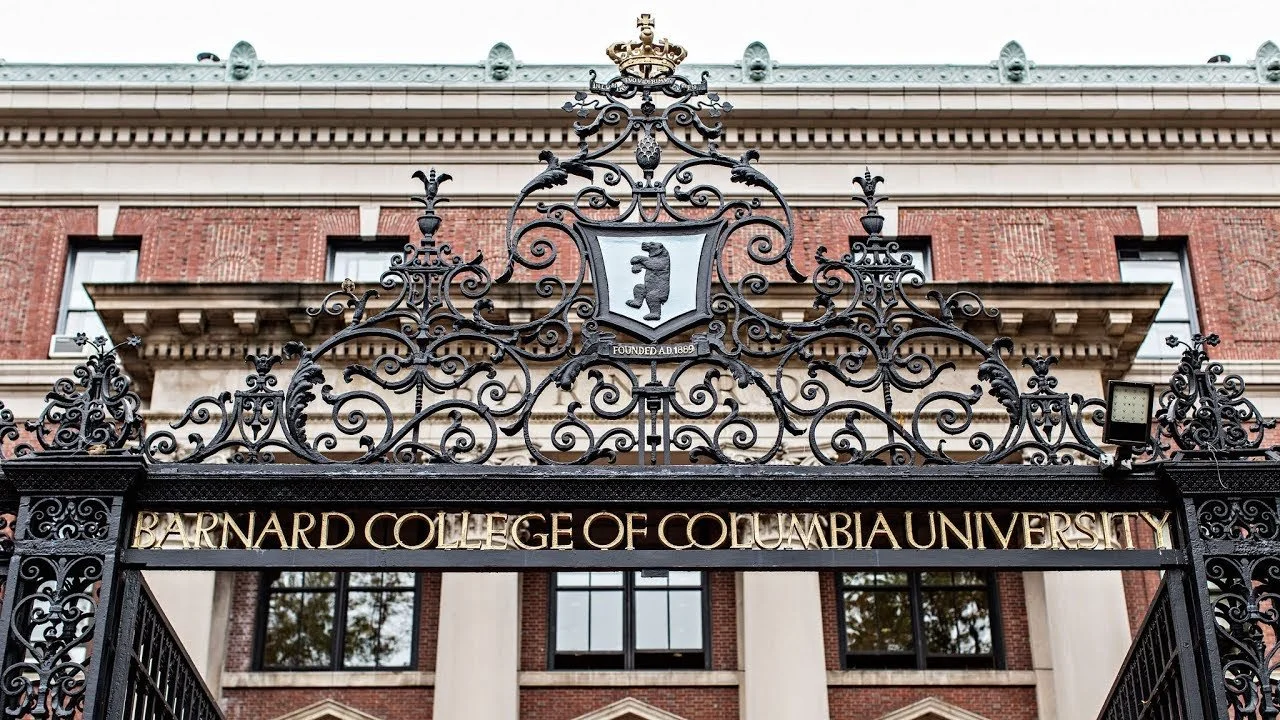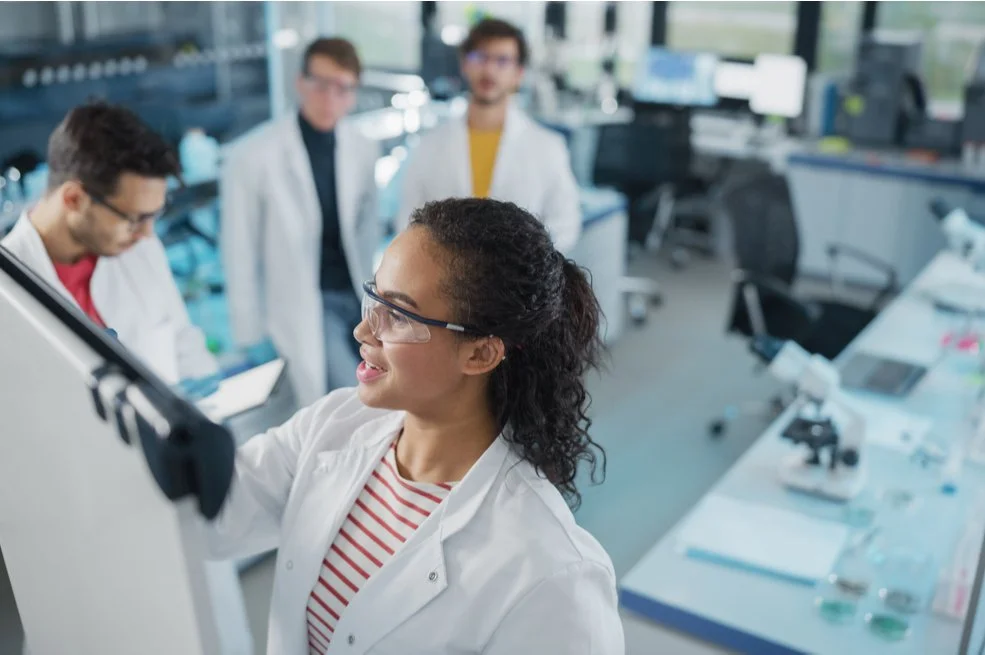Supporting Science Teachers and Students: A Look Inside the Amgen Foundation
/Air Images/shutterstock
Created in 1991, the Amgen Foundation is the philanthropic arm of Amgen Inc., one of the world's leading independent biotechnology companies. Amgen is legendary for its profitability, its large cash reserves and its red-hot stock, which has nearly quadrupled in value in the past decade. These riches have helped underwrite an active foundation that “seeks to advance excellence in science education to inspire the next generation of innovators, and invest in strengthening communities where Amgen staff members live and work.” To date, the foundation has contributed more than $300 million to local, regional and international nonprofit organizations that reflect Amgen’s core values, and has contributed nearly $150 million to advancing science education programming globally.
Amgen Foundation runs a range of programs, and I recently sat down with Eduardo Cetlin, Amgen Foundation president, and executive director of philanthropy and responsibility at Amgen Inc., at this year’s Social Innovation Summit in Los Angeles to find out more about the foundation’s layered work. In the process, I learned about many of the foundation’s core activities, and what’s down the line for this corporate funder in a science education space that’s been attracting a lot of philanthropic attention lately.
Brazilian-born Cetlin began by telling me a little bit about Amgen Inc. itself. Founded in 1980, 40 miles northwest of downtown Los Angeles in Thousand Oaks, Cetlin says the company exists to serve patients and tackle the painful diseases that wreak havoc on patients and their families. A part of Amgen’s philanthropy reflects that mission, and Cetlin oversees an assistance program that distributes medicine and supplies. Last year, for example, Cetlin says Amgen donated more than $90 million worth of cancer medication via Direct Relief in Santa Barbara for 6,000 to 7,000 patients in 18 developing countries.
Building a Pipeline of Science Teachers and Talent
But like a lot of companies these days, especially in the tech and pharma sectors, Amgen is worried about education and the quality of tomorrow’s workforce—a concern that’s a central driver of the foundation’s work. “If society doesn’t understand how science works, we’re in trouble,” Cetlin begins. “How is it possible that we’re seriously thinking about how to cure cancer and making progress on the one hand, with some believing in, say, moon landing conspiracy theories on the other? Our education system is stuck in the last century. We need to foster students who understand how the world works, how to question it, and how to navigate it successfully.”
To that end, the Amgen Foundation operates on two fronts. It works to empower science teachers, which Cetlin calls the secret ingredient, and it also works with science students. The foundation’s Amgen Biotech Experience (ABE) collaborates with “leadership from university and other partners” to give “teacher professional development, teaching materials, and research-grade lab equipment to high schools.” This flagship program dates back some three decades, when two friends, a teacher from Newbury Park High School and a young Amgen scientist, started to talk about bringing some of Amgen’s techniques to the classroom.
Cetlin says, “We train the teacher, bring them to a training session together with a bunch of other teachers, where they get to be a student again, and say, ‘I don’t get this’ or ‘I’m having trouble with that.’ And we provide professional-grade equipment. Some people have been for the program for more than 20 years, and we really see a multiplier effect with its impact on thousands of students.”
Training typically happens during the summer, with between 1,000 and 1,200 teachers participating at any given time. Cetlin says Amgen currently reaches about 80,000 students a year through the program, which works in Southern California and other places where Amgen has a presence, including Boston and Puerto Rico.
Another major program, Amgen Scholars, offers “cutting-edge research experiences and exposure to biotechnology and drug discovery” to undergraduate students at select universities in the U.S., Europe, Asia, Canada and Australia. “They have the opportunity to act like scientists in the classroom. Every scientist starts with a question. This is what we need to enable our students to do,” Cetlin says.
Amgen Scholars offers undergraduate research opportunities at 24 institutions. Out of more than 5,500 applicants at more than 1,200 colleges, 360 students are selected to do summer research. Amgen provides financial resources, including a stipend, which includes airfare and room and board. The program also includes a symposium, where scholars connect and meet actual scientists. Scholars also visit Amgen headquarters. And as far as impact, Cetlin says that Amgen Scholars are “now faculty or running their own labs. They’re really all over their scientific careers, working in industry and academics.”
New Online Tools for Science Education
At the helm of Amgen Foundation, Cetlin thinks a lot about questions of scale and impact, aiming to transform science education beyond the reach of Amgen BioTech Experience and Amgen Scholars. To that end, Cetlin reached out to Khan Academy, the nonprofit educational organization headquartered in the Bay Area, with the hope of creating biology programming. These talks eventually resulted in a one-year pilot and a three-year grant to Khan Academy, which developed an entire curriculum related to biology.
“What they did first in math, now they have done in biology,” Cetlin explains, jazzed about the power of technology to step in for these teachers: “A textbook is updated every three to five years, and is expensive. In our partnership with Khan, we’ve also helped empower teachers to determine how curriculum is utilized. There’s an analytics factor here where I, as a teacher, can monitor student progress, and see the exact moment where he or she got stuck.”
Similarly, Cetlin also tells me about a new program on the horizon, LabXchange, set to launch this fall. Grabbing a napkin and mapping out the nascent program in front of me in a frenzy, Cetlin talks about bringing together top-tier content from sources like edX in the form of online learning assets—videos, assessments and simulations— to create a digital platform serving science educators, students and researchers. LabXchange’s re-engineered Open edX platform will give users the flexibility to search, select and insert these assets into new learning pathways.
If they’re successful, Cetlin believes that LabXchange will be the “go-to place for biology content,” adding, “We’re going to stagger the individual assets across a universe and organize them into pieces. A lecture, a video, a graph, a new article from a technical magazine so you can mix and match. Then, behind the scenes, quantitative experts at Harvard will vet the content. Now biology teachers have tons of information to make their own choices. Now you have the ability to show your students what’s happening in real life and how they can use this content. If this works, if it’s powerful as we think it’s going to be, we’ll start to level the playing field.”
Cetlin is also excited about the leadership that steers LabXchange, including Robert Lue, faculty director and principal investigator. A Harvard professor of molecular and cellular biology, Lue also founded HarvardX, “a University-wide strategic initiative to enable faculty to build and create open online learning experiences for residential and online use, and to enable groundbreaking research in online pedagogies.”
Of the use of technology in science education, Cetlin couldn’t be more sold: “Khan is really doing some powerful things, and I love its simplicity. You watch a video and learn. They’re even having students take courses during free periods. The opportunities are endless.”
A Lean Operation
Given the many tentacles of Amgen’s philanthropy, Cetlin surprised me when he told me the foundation has a team of precisely “3.5 people.” A critical ally for Amgen through the years has been Educational Development Center (EDC) in Boston, which “designs and delivers programs in education, health, and economic opportunity that provide life-changing opportunities to those who need them most.” The Amgen Biotech Experience Program Office is based at EDC, providing technical assistance, developing resources, and supporting program sites and participating teachers. Returning to his napkin, Cetlin explains that EDC works with some 20 institutions including Harvard and Berkeley. “From project director, to distribution center, to individual teacher, it takes a village.”
Before we ended our conversation, Cetlin also told me about Woodrow Wilson Academy for Teaching and Learning (WW Academy), which, in collaboration with MIT, aims to reinvent American teacher preparation. Amgen is among WW Academy’s funders, along with the likes of the Zuckerberg Chan Initiative, the Bezos Family Foundation, and the Simons Foundation. “Who says four years is enough to teach teachers to be teachers? What does he or she need to be successful? How do you deal with school bureaucracy? WW Academy is thinking about the actual clinical practice of teaching, and how to make sure teachers be better prepared for what comes ahead.”
Ultimately, Cetlin makes a distinction between the world of school and world of work, and the importance of connecting the two—not unlike that Amgen scientist and high school science teacher who launched Amgen Biotech Experience many years ago: “We need to be getting the world of work to talk to the world of education, and vice versa. And from there, this won’t just benefit Amgen, but our entire industry, and society at large.”







































